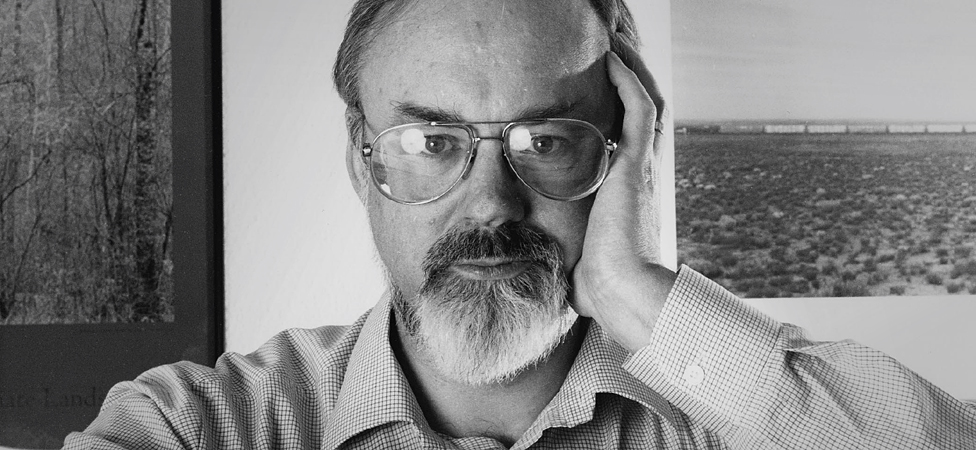

John McCabe (Commandeur in de O.B.E) (Huyton, 21 april 1939 – 13 februari 2015) was een Brits componist, muziekpedagoog en pianist.
Levensloop
McCabe kwam al als klein kind met muziek in aanraking. Omdat hij veel ziek was, en hij toen niet naar school kon gaan, las hij veel en luisterde hij naar muziek. Ook met componeren begon hij vroeg; zo had hij al op elfjarige leeftijd 13 (jeugd-)symfonieën geschreven. Hij studeerde bij Proctor Greg (compositie) aan de Universiteit van Manchester en vanaf 1960 bij Gordon Green (piano) en bij Thomas B. Pitfield (compositie) aan het Royal Northern College of Music (RNCM). In de jaren 1964-1965 studeerde hij bij Harald Genzmer aan de Hochschule für Musik und Theater in München, waar hij in contact kwam met de muziek van Karl Amadeus Hartmann.
Aanvankelijk werkte McCabe zowel als piano-solist alsook als componist. Als pianist speelde hij zowel eigen werk als werken van vooral eigentijdse Britse en buitenlandse componisten zoals Arnold Bax, John Corigliano, Elliott Carter (Piano Sonata), Aaron Copland (Variations), Paul Hindemith en Anton Webern (de Variaties Op.27). Vanaf 1965 was hij voor drie jaar huispianist aan de Universiteit van Cardiff.
Van 1983 tot 1990 was hij directeur van het Royal College of Music in Londen.
Zijn carrière als componist werd meestal begeleid door het Hallé Orchestra uit Manchester. Met de violist Martin Milner verzorgde dit orkest in maart 1963 de première van zijn Vioolconcert nr. 1 (1959). Onder leiding van Maurice Handford stelde dit orkest ook zijn Variations on a Theme by Karl Amadeus Hartmann (1964) in 1965 voor. Het orkest gaf hem de opdracht voor het schrijven van zijn Symfonie nr. 1 – Elegie, die in 1965 afgesloten werd. Als componist schreef hij werken voor bijna ieder genre, van kamermuziek, werken voor orgel en piano tot muziektheaterwerken (twee opera’s en zeven balletten), tot grote symfonieën en werken met vocale solisten en gemengd koor. De internationale doorbraak als componist kwam er met zijn orkestrale zangcyclus Notturni ed Alba uit 1970. Hij schreef talrijke concerten voor haast ieder instrument – en combinaties ervan – en orkest. McCabe heeft een uitstekende reputatie als componist in de Britse blaasmuziekwereld voor zijn werken voor brassbands of harmonieorkest. Zijn balletten beleefden grote successen in Duitsland, Engeland, de Verenigde Staten en Hongkong. https://nl.wikipedia.org/wiki/John_McCabe
John McCabe, Symphony No.4 “Of Time & the River” (1994) (Unknown artist) – Radio broadcast
inda Merrick – Clarinet Neil Heyde – Cello Aaron Shorr – Piano Performed 5 October 2012, Stevenson Hall, Royal Conservatoire of Scotland
John McCabe: music of iron-clad integrity
The directness of McCabe’s idiom, especially in his later music, gives you the feeling that you’re listening to the irreducible heart of the musical matter

Essential … composer and pianist John McCabe, who died last week. Photograph: Reg Wilson/RexTom ServiceTue 17 Feb 2015 13.57 GMT
The body of work that John McCabe leaves to the world, after his death last Friday at the age of 75, is music of iron-clad integrity. As a composer and personality, McCabe had nothing to do with the mawkish, lachrymose or hyperbolic.
His pieces are a single-minded, unapologetic, plain-speaking attempt to continue the values of the music that was closest to him in new and distinctive ways. That meant revivifying the forms of symphony – he completed seven of them – concerto, string quartet, and more, in a catalogue of works that distil McCabe’s lifelong immersion in the music he loved – Haydn, Vaughan Williams, Beethoven, Tippett, Bartók – into a voice and manner entirely his own. His recordings of Haydn’s piano sonatas remain pianistic landmarks.
But the directness of address of McCabe’s idiom, especially in his later music, the feeling that you’re listening to the irreducible heart of the musical matter, whether on the scale of a symphony or chamber music, does not mean there is a want of poetry, image, or even transcendence in this music.
In fact, the poetry comes precisely from its focus on the stuff of music, what for McCabe were the eternal verities of harmony, structure, momentum, and cohesion. That meant going his own way instead of following the styles and fashions of his contemporaries. Have a listen to his The Chagall Windows from 1974, one of his last works to use serial principles, and one of his most shattering.
McCabe’s works seek to speak both to our time and beyond it, to show the continuing possibilities of what were, for McCabe, essential musical and ethical principles.
Here are five of his most distinctive pieces:
1. Cloudcatcher Fells (1985): a classic of the brass-band repertoire, and a transfiguration of McCabe’s relationship with the landscapes of the Lake District into music of compelling pictorial and emotional energy.
2. Violin Concerto No 2 (1980): one of McCabe’s largest-scale essays for soloist and the orchestra, and one of the most sweeping, epic, and lyrical.
3. Symphony 7, “Labyrinth” (2007): the last of McCabe’s completed symphonies; in a single, 20-minute movement – as is Sibelius’s Seventh. But McCabe’s charts a distinctive, craggy symphonic topography of its own.
4. Pilgrim, for Double String Orchestra (1998): music of compressed yet teeming invention, that veers from meditative calm to tremendous, lashing energy.
5. Joybox: composed for the Proms in 2013, this was McCabe’s last completed orchestral work; an unexpectedly exuberant piece, inspired by Japanese arcade machines, that McCabe completed while in the throes of treatment for a brain tumour. He called it an “entertainment piece”, but there are moments of strangeness and chaos here, too. https://www.theguardian.com/music/tomserviceblog/2015/feb/17/john-mccabe-music-of-iron-clad-integrity
